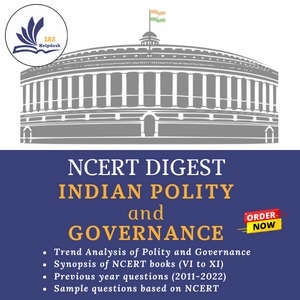SC verdict of Same-sex marriage
Description
SC verdict of Same-sex marriage
Description: Explore the concept of same-sex marriage, its status around the world, the recent SC verdict on that, and arguments for and against same-sex marriage in India, touching on key points like human rights, cultural beliefs, and legal challenges.
SC verdict on Same-Sex marriage
Same-sex marriages refer to marriages between two individuals of the same gender. By same-sex marriage, we mean marriage between gays (a boy marrying a boy) and lesbians (a girl marrying a girl).
Status in India
A five-judge bench of the Supreme Court that was headed by Chief Justice of India DY Chandrachud unanimously ruled against legalising same sex marriage in India.
Rejecting petitions seeking same-sex marriage in the country, all five judges agreed that there was no fundamental right for non-heterosexual couples to marry. The Bench also included Justices Sanjay Kishan Kaul, S Ravindra Bhat, P S Narasimha, and Hima Kohli. In his opinion , the CJI has left it to the Parliament to decide on the issue.
CJI directs the Centre to:
1. Ensure queer community is not discriminated against.
2. Ensure there is no discrimination in access to goods and services.
3. Sensitise the public about queer rights.
4. Create a hotline for the queer community.
5. Create safe houses or Garima grih for queer couples.
6. Ensure inter-sex children are not forced to undergo operations.
7. No person shall be forced to undergo any hormonal therapy.
He also issues guidelines to police to not harass queer people or force them to return to their natal families.
Timeline of the Verdict
• November 25, 2022: Two gay couples approach the Supreme Court, seeking recognition of same-sex marriage under the Special Marriage Act. A two-judge bench led by Chief Justice of India D Y Chandrachud seeks a response from the Central government.
• December 14, 2022: The Supreme Court issues notice in another plea filed by one Indian national and one US citizen, seeking recognition under the Foreign Marriage Act, 1969.
• January 6, 2023: The Supreme Court transfers all petitions seeking legal recognition for same-sex marriages pending before different high courts to the Apex court.
• March 12, 2023: The Centre filed an affidavit before the SC opposing same-sex marriage.
• March 13, 2023: The SC refers the case to a Constitution Bench.
• April 1, 2023: The Jamiat Ulama-I- Hind opposed the pleas.
• April 6, 2023: The Delhi Commission for Protection of Child Rights (DCPCR) supports same-sex marriages.
• April 15, 2023: The Supreme Court notified the composition of the five-judge bench.
• April 17, 2023: The Centre files a new application, questioning the maintainability of the batch of pleas.
• April 17, 2023: The NCPCR says children raised by same-sex parents may have limited exposure.
• May 11, 2023: The Constitution bench led by Chief Justice D Y Chandrachud reserved its verdict.
• October 17, 2023: SC rejected legalization of same-sex marriage.
Status across the globe
Across the globe, there is a wide spectrum of attitudes and legal stances on the issue of homosexuality and same-sex marriage. Some nations embrace these relationships, granting legal recognition to same-sex marriages, while others vehemently oppose homosexuality and even criminalize it.
Some of the following nations have legalized same-sex marriage:
• Argentina, where same-sex marriage was legalized on November 12, 2009.
• Australia, which passed a law on December 9, 2017, allowing same-sex marriage.
• Brazil, where same-sex marriage became legal on May 14, 2013.
• Canada, which recognized same-sex marriage on July 20, 2005.
• The United Kingdom, where different parts of the UK legalized same-sex marriage at various times in 2013.
• The United States, which saw nationwide legalization on June 26, 2015.
In contrast, certain nations, including Armenia, Belarus, and the Dominican Republic, have argued that same-sex marriage contradicts what they perceive as the natural order and have thus prohibited it within their borders.
Countries governed by Islamic law often interpret same-sex marriage as a crime and, consequently, forbid it under their legal systems.
Arguments in favour
• Equality and Human Rights: Advocates for same-sex marriage argue that it is a matter of human rights and equality. They believe that every individual, regardless of their sexual orientation, should have the right to marry the person they love and receive the legal and social benefits that come with marriage.
• Mental Health: Supporters of same-sex marriage argue that legal recognition can positively impact the mental health and well-being of LGBTQ+ individuals. It can reduce the stigma and discrimination they face and provide a sense of belonging and security.
• Economic Benefits: Marriage can provide various legal and financial benefits, such as tax benefits, inheritance rights, and access to spousal healthcare benefits. Legalizing same-sex marriage can ensure that LGBTQ+ couples have access to these benefits.
Arguments against same-sex marriage
• Traditional values: Some people believe that same-sex marriage is a violation of traditional Indian values.
• Religion: Some religions in India, such as Christianity and Islam, explicitly prohibit same-sex marriage.
• Social order: Some people believe that same-sex marriage will undermine the social order and lead to the breakdown of the traditional family structure.
• Impact on children: Some people believe that children raised by same-sex couples will be disadvantaged.
Views of the Central Government and other government institutions
• The central government has opposed gay marriage rights and said the matter should be legislated by Parliament and not decided by the courts.
• The National Commission for Protection of Child Rights said that children raised by same-sex parents may have limited exposure to traditional gender role models, which could impact their understanding of gender roles and gender identity.
• The NCPCR further stated that exposure of these children would be limited and their overall personality development would be affected.

